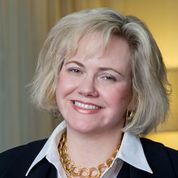By Leah Binder
More than 60 percent of surgical procedures now take place in an outpatient environment, meaning you, your family, or your employees will likely need same-day surgery at an Ambulatory Surgery Center (ASC) or Hospital Outpatient Department (HOPD). Many employers welcome this trend, which supports less invasive surgery performed in less expensive settings than traditional inpatient hospital care. But are these settings as safe as inpatient care? Unfortunately, according to Leah Binder, president & CEO of the employer-driven Leapfrog Group, we don’t know enough yet. “Despite this increasing shift towards same-day procedures, surprisingly little information about the safety and quality of these settings is available to the public,” said Binder. As a result, in 2019 Leapfrog launched a new program to collect and publicly report quality and safety data from both ASCs and HOPDs.
The Leapfrog Group is well positioned to get this information and make it available—but they need employers to help. A national nonprofit formed by employers, Leapfrog has been collecting data on inpatient hospital care for nearly 20 years as part of the annual Leapfrog Hospital Survey, which uses the collective leverage of hundreds of employers across the country to persuade hospitals to report performance information not available from claims or any other source. Leapfrog also issues the Hospital Safety Grade, an A, B, C, D or F grade assigned to general acute care hospitals based on their ability to prevent avoidable errors, injuries, and infections that can harm or even kill patients.
Leapfrog obtains data from hospitals because employers ask them to report it. Reporting to Leapfrog is free for hospitals, and the data is freely available to the public. Today over 70% of the hospital beds in the country are covered in the Hospital Survey. That same model for obtaining data is planned for same-day surgery. “We need employers to be as vocal about same-day surgery as they are about inpatient care. This matters to you and your employees, and you spend considerable amounts of resources on health care so it’s reasonable to ask that same-day surgery providers complete the Survey,” said Binder. She points out that many employers make the request alongside other employers via their local business group on health. Most of these business coalitions are involved in Leapfrog as Regional Leaders. “Leapfrog belongs to employers. If you want this data you have to make it clear in your market and across the country.”
Leapfrog’s new report, Same-Day Surgery in the U.S.: Findings of Two Inaugural Leapfrog Surveys, details preliminary findings of its inaugural voluntary survey of ASCs and an added section of the Leapfrog Hospital Survey covering outpatient surgery. Data was voluntarily submitted by 321 ASCs and 1,141 HOPDs across the country that completed a Survey by August 31, 2019. Each Survey includes standardized, evidence-based measures of care specific to places that perform ambulatory and outpatient procedures. The Surveys are intended for facilities that perform procedures in any of the following specialties: Gastroenterology, General Surgery, Ophthalmology, Orthopedic, Otolaryngology, Urology, Dermatology, Neurological Surgery, Obstetrics and Gynecology, and Plastic and Reconstructive Surgery.
This first report presents aggregate results across the country, but next year Leapfrog will begin publicly reporting by individual facility. This will allow consumers and purchasers to compare places that offer specific procedures in their community.
The Leapfrog Hospital Survey and Leapfrog ASC Survey have brought to light some key findings about these facilities, detailed below.
- There are gaps in the education, training and national certifications of clinicians in both ASCs and HOPDs. Both ASCs and HOPDs showed gaps in ensuring all providers performing surgery or anesthesia were board certified. Of further concern, while nearly all ASCs and HOPDs always have a clinician present who is certified in Advanced Cardiovascular Life Support (ACLS) and can perform life-saving actions if complications arise, fewer facilities have clinicians certified in Pediatric Advanced Life Support (PALS). Parents should ensure the facility they choose for their child’s procedure has PALS-certified clinicians prior to scheduling a procedure.

- Consent and communication outside business hours are problematic. Encouragingly, nearly all ASCs and HOPDs ensure that patients know who to contact after-hours following their procedure if needed, though both types of facilities could do better at proactively contacting patients by phone within 24 hours after discharge. In both ASCs and HOPDs, most facilities are not providing surgical and anesthesia consent forms prior to the day of the surgery. Patients would benefit from having this information in advance so they can more carefully consider the risks and develop questions to ask their providers.
- ASCs lag behind HOPD counterparts in implementing best practices for patient safety. All facilities that perform same-day surgery should be complying with best practices as identified by national organizations for infection prevention, hand hygiene, and medication safety. Very few ASCs have an antimicrobial stewardship program in place and were also less likely to adopt practices such as monitoring for hand hygiene compliance. ASCs have many opportunities in the future to demonstrate improvement in this area.
- Patients tend to give higher patient experience ratings to ASCs—but not enough ASCs monitor it. On the whole, patients reported their experience with ASCs to be more positive than that reported of HOPDs, though there are fewer ASCs participating in the standard patient experience survey. Both ASCs and HOPDs can benefit from increased participation in the Consumer Assessment of Healthcare Providers and Systems Outpatient and Ambulatory Surgery Survey (OAS CAHPS), the tested and validated instrument for assessing patient feedback.

The chart represents the OAS CAHPS Tox Box Score: the percent of survey respondents who chose the most positive score for a given item. Looking at the top box is an approach to understand the number of responses with a strong sentiment.
“All told, our hope is that the information in this report will be a first step to enlighten health care purchasers, payors and patients about the safety and quality of same-day surgery,” Binder said. “This report informs key questions that all patients should ask before scheduling a procedure, and key risks to be aware of. We commend facilities that have chosen to be transparent about their performance and look forward to reporting more data to educate purchasers in the future.”
To view the full report, visit www.leapfroggroup.org/SameDaySurgery.
For an employer toolkit and information about asking your local providers to report to Leapfrog, visit https://www.leapfroggroup.org/employers-purchasers/value-tools.

The Leapfrog Group
info@leapfrog-group.org
www.leapfroggroup.org
